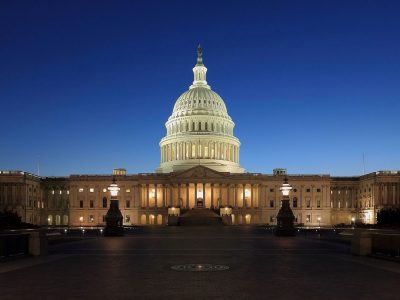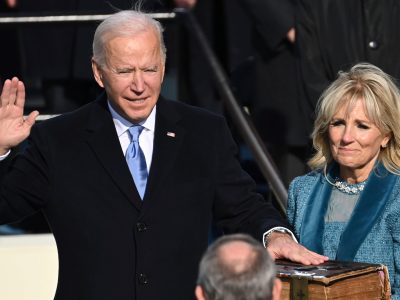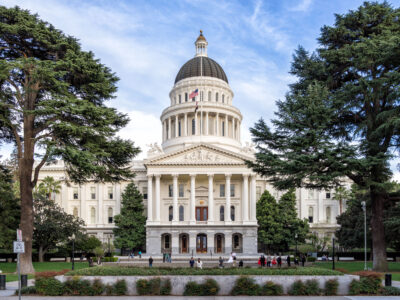Federal Climate Policy
Trump & Environmental Policy: The Sequel, Part II
Expect a lot of the same, but there could be some new twists.
Trump’s basic thrust is to eliminate environmental protection, just as he tried to do in his first term. But there are some new factors — new faces like Kennedy and Musk, and new developments like the massive investments sparked by Biden’s Inflation Reduction Act. Both Trump and the resistance will be better organized. In one way, you could think of this as a fascinating social experiment — but one with potentially devastating consequences for public health, climate change, and the future of the planet.
CONTINUE READINGTowards Better Permitting Reform
What are we trying to achieve?
This is the third in a series of posts on permitting reform. The first post is here. The second post is here. How could we realistically achieve permitting reform that will advance climate and environmental goals? Answering that question requires recognizing the political realities of a sharply divided Congress and country. Any significant change to …
Continue reading “Towards Better Permitting Reform”
CONTINUE READINGDeal or No Deal?
Should Congress pass EPRA?
This is the second in a series of posts on permitting reform. The first post is here. Given the provisions of the Energy Permitting Reform Act (EPRA), should Congress enact it as it stands now? Answering that question is tricky, in part because it depends both on uncertain political and administrative action, as well as …
Continue reading “Deal or No Deal?”
CONTINUE READINGShould We Do Permitting Reform?
What is at stake with the Manchin bill.
As Congress wraps up its lame duck session before the new Congress and President arrive in January, there is a lot of debate about whether to move forward on permitting reform within a quickly shrinking window of time. The basis of debate is the Energy Permitting Reform Act (EPRA) co-sponsored by Senators Manchin and Barrasso. …
Continue reading “Should We Do Permitting Reform?”
CONTINUE READINGTrump & Environmental Policy: The Sequel, Part I
Expect a lot of the same, but there could be some new twists.
They say that history never repeats itself, but it often rhymes. As in many sequels, there will be many things we’ve seen before. Much of that consisted in an all-out attack on environmental law. If you hated the original, you won’t enjoy watching the same thing the second time around. This will include massive regulatory rollbacks and expansion of fossil fuels regardless of environmental harms.
CONTINUE READINGYes, Virginia, There ARE Federal Climate Laws.
Contrary to myth, Congress has actually passed laws relating directly to climate change.
It’s a common misconception that Congress has never passed any climate change legislation. But Congresshas passed at least laws regulating two powerful greenhouse gases, as well as a series of other laws stretching back almost forty years. The story begins under President Nixon and extends into the Biden years with the multi-billion dollar Inflation Reduction Act.
CONTINUE READINGA To-Do List For Biden
The clock is ticking, but there’s still time for a few important last things.
Biden has a little over two months left in office. There are some important things he can do in the meantime to protect the environment from the next administration. Here are a few of the most important efforts.
CONTINUE READINGU.S. Energy Industry Trends To Watch In A 2025 Trump Presidency
New Trump administration policies will impact the energy industry, but maybe not in the ways Trump supporters expect, writes Guest Contributor Allan Marks.
Allan Marks is a partner at Milbank LLP and a lecturer at UC Berkeley School of Law and UCLA School of Law. This article was originally published in Forbes, for which he is a contributor, on November 7, 2024. When Donald Trump returns to the Oval Office in January 2025, his second presidency will have …
Continue reading “U.S. Energy Industry Trends To Watch In A 2025 Trump Presidency”
CONTINUE READINGTrump-Proofing Time at the California Legislature?
Governor Newsom has called a special session for December 2nd. How can California lawmakers ensure California’s climate and environmental progress in the years ahead?
During the last Trump administration, California emerged as a serious counterweight to federal government backsliding on climate and the environment, and last week, some California lawmakers publicly recommitted to resisting future Trump administration efforts to reduce environmental and climate protections. On November 7, Governor Newsom issued a proclamation calling the Legislature into a special session …
Continue reading “Trump-Proofing Time at the California Legislature?”
CONTINUE READINGNEPA in the Supreme Court (Part II)
Here’s why the Supreme Court should reject radical arguments for limiting environmental impact statements.
Our last post explained the background of the Seven Counties NEPA case, which is currently pending in the Supreme Court. Today, we discuss the radical arguments that have been made in the case and why they should be rejected. NEPA requires that agencies consider the environmental effects of their projects, but the petitioners raise hairsplitting arguments to exclude obvious effects due to technicalities. Pleas for revising the law should be made to Congress, not to the Supreme Court.
CONTINUE READING








